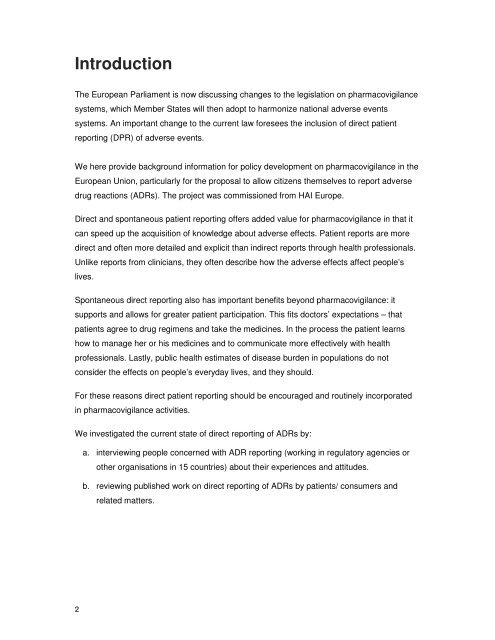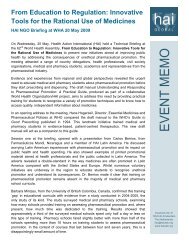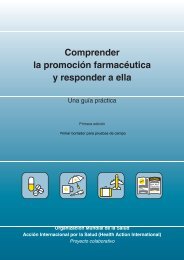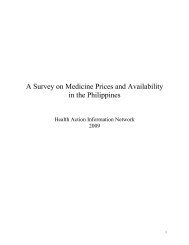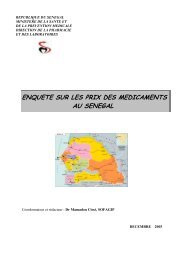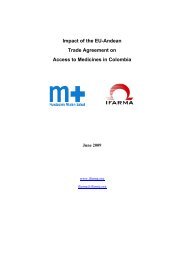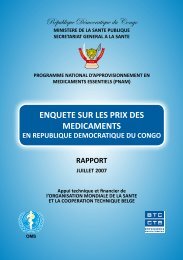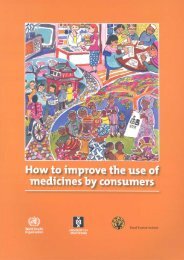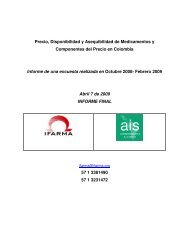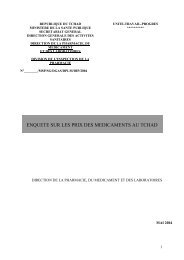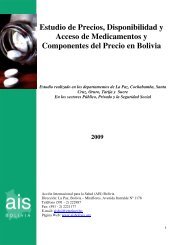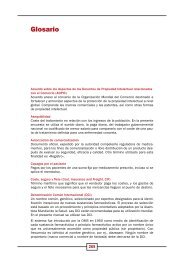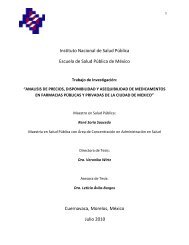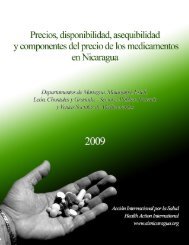Direct Patient Reporting of Adverse Drug Reactions - Cochrane ...
Direct Patient Reporting of Adverse Drug Reactions - Cochrane ...
Direct Patient Reporting of Adverse Drug Reactions - Cochrane ...
Create successful ePaper yourself
Turn your PDF publications into a flip-book with our unique Google optimized e-Paper software.
IntroductionThe European Parliament is now discussing changes to the legislation on pharmacovigilancesystems, which Member States will then adopt to harmonize national adverse eventssystems. An important change to the current law foresees the inclusion <strong>of</strong> direct patientreporting (DPR) <strong>of</strong> adverse events.We here provide background information for policy development on pharmacovigilance in theEuropean Union, particularly for the proposal to allow citizens themselves to report adversedrug reactions (ADRs). The project was commissioned from HAI Europe.<strong>Direct</strong> and spontaneous patient reporting <strong>of</strong>fers added value for pharmacovigilance in that itcan speed up the acquisition <strong>of</strong> knowledge about adverse effects. <strong>Patient</strong> reports are moredirect and <strong>of</strong>ten more detailed and explicit than indirect reports through health pr<strong>of</strong>essionals.Unlike reports from clinicians, they <strong>of</strong>ten describe how the adverse effects affect people’slives.Spontaneous direct reporting also has important benefits beyond pharmacovigilance: itsupports and allows for greater patient participation. This fits doctors’ expectations – thatpatients agree to drug regimens and take the medicines. In the process the patient learnshow to manage her or his medicines and to communicate more effectively with healthpr<strong>of</strong>essionals. Lastly, public health estimates <strong>of</strong> disease burden in populations do notconsider the effects on people’s everyday lives, and they should.For these reasons direct patient reporting should be encouraged and routinely incorporatedin pharmacovigilance activities.We investigated the current state <strong>of</strong> direct reporting <strong>of</strong> ADRs by:a. interviewing people concerned with ADR reporting (working in regulatory agencies orother organisations in 15 countries) about their experiences and attitudes.b. reviewing published work on direct reporting <strong>of</strong> ADRs by patients/ consumers andrelated matters.2


